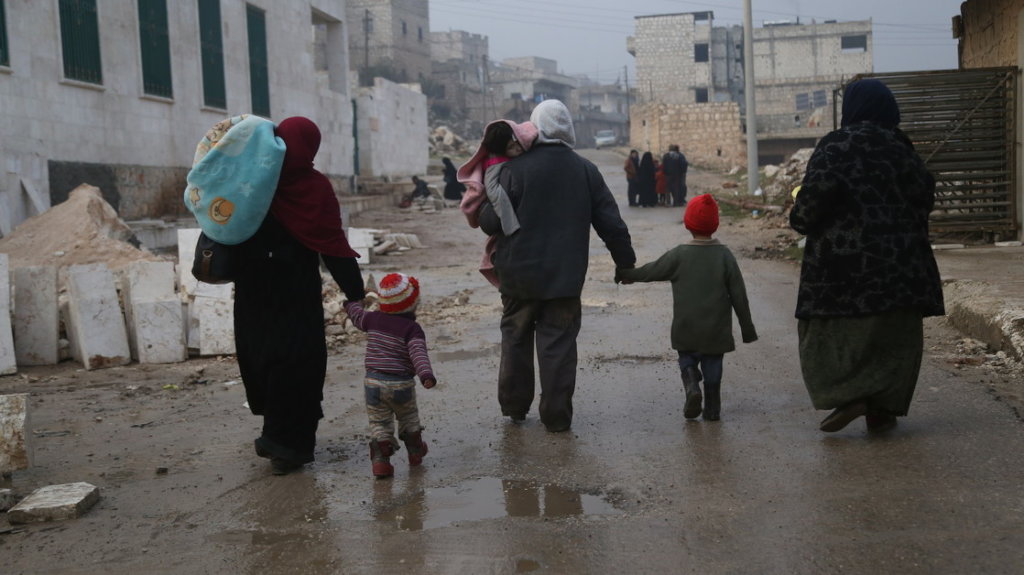From the outset, the Aga Khan Foundation has aligned itself with the regime, whose clear and hidden influences permeate all aspects of governance, ensuring that its preferences shape the lives of people in the areas it controls.
What began as an institution dedicated to supporting the poor globally through development projects in health and economic fields has morphed into an entity entangled in the systematic corruption that the Syrian regime has entrenched within state structures. Practices such as bribery, nepotism, and favouritism have taken hold.
In a city known for its peacefulness, there’s a popular joke: “The Aga Khan Foundation has changed its name to the Aga Fadhil Warda,” referring to the leader of the National Defense Militia and a member of the Baath Party’s central leadership. He and other security officials wield significant power over the city through their militias, and they extend that control to the Aga Khan Foundation, whose staff often comprises relatives and associates of these influential figures.
Discrimination in the distribution of aid and cutting off support to the needy
In the realm of humanitarian aid, the Aga Khan Foundation has played a role in supporting and distributing assistance to those in need, particularly in times of war, natural disasters, and crises like the COVID-19 pandemic. However, recent developments have seen corruption seep into this aid process. Support has diminished for many of the most vulnerable rural residents, while aid has increasingly favoured urban beneficiaries, leaving the poorest and most needy without the assistance they require.
Under pressure from the regime: Very high benefits
In a related context, the Aga Khan Bank, known for providing soft loans to the poor worldwide at low interest rates that align with borrowers’ incomes, was the only bank in Syria that continued offering loans during the war years. However, this support came with a catch: the already low interest rates increased dramatically after the war, at the regime’s request, which imposes fees on any entity under its control. As a result, interest rates soared from 11% to between 30% and 90%, depending on the loan duration.
This shift has been deemed unfair to borrowers, who initially turn to these loans as a means to cope with dire economic conditions but find themselves ensnared in a financial trap. Tariq, a shop owner, shared with Syria TV, “I applied for a loan of 10 million to support my shop, only to discover I’d need to repay 13 million after six months or 18 million after five years. Essentially, I have to work just to repay the loan, with no money left for basic needs.”
High wages at the Aga Khan Medical Centre
As mentioned, the assistance provided by the Aga Khan organizations spans multiple sectors, including food aid, psychological support during disasters, financial assistance for farmers, and solar energy systems to support small projects. They also offer healthcare services through the Aga Khan Medical Centre, which provides paid services to citizens.
The center operates on the premise of bringing skilled doctors from outside Salamiya to offer consultations one day a week, rather than patients travelling to the doctors’ private practices. However, the fees charged by the center exceed the doctors’ standard rates by over 20,000 SYP which many people with limited incomes view as exorbitant. This financial burden makes the center’s services less accessible, and the increased patient volume has led to long wait times, further complicating the experience for those seeking care.
Examples of corruption in the institution
A source within the Aga Khan Foundation, who requested anonymity, told Syria TV that “the corruption affecting the Aga Khan Charitable Organizations has become a widely accepted reality among the people of Salamiya. Job vacancies announced by the Foundation often have predetermined candidates, while bills are inflated to excessively high prices. Additionally, there are significant disparities in salaries—fixed employees can earn up to $3,000 a month, while volunteers and temporary workers often receive less than three dollars per day.”


